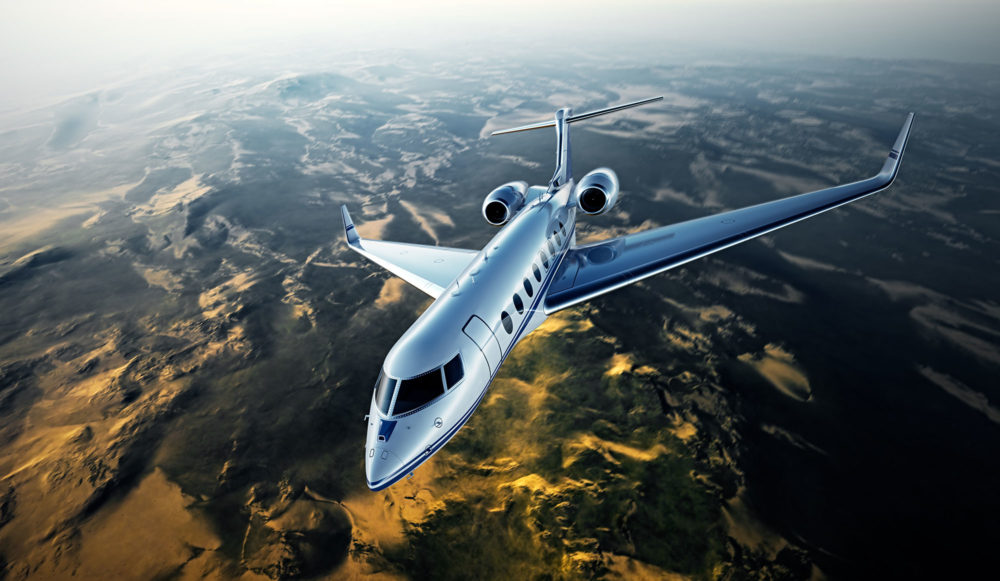Luxury Travel and Covid-19: How the industry responds to unprecedented challenges
With uncertainty at its core, the pandemic raises countless questions about the future of luxury travel. This article provides you with insights about current initiatives of key players and possible future changes. Share
Only time will tell specifically how much the coronavirus pandemic impacts the overall economy, but at this point in time it is safe to say that some industries take bigger hits than others. With the airline & leisure business at the core of its functioning, the travel industry suffers strong immediate economic consequences due to travel restrictions and social distancing measures in almost every country in the world. Whether it is due to the cancellation of flights, trains, and cruises, or the fact that travellers do not feel comfortable risking exposure: tourism is standing still.
Despite differentiating itself from the general travel industry by the means of exclusive services, special offers, and unique opportunities, the luxury travel industry does not stand above the law and also experiences dramatic consequences of Covid-19. However, luxury travel does not play by the same rules either: its one-of-a-kind business models and certain loyal customer base will make the difference in the fight to survive in these challenging times.
Storms make trees grow bigger roots, and the ongoing storm certainly leads to the emergence of creative initiatives
While facing countless canceled reservations and lost revenue, many players of the hospitality sector have come up with innovative ideas allowing them to continue providing their services and generate excellent PR for their establishments at the same time. Most top name hotels are famous for their expertise in a particular area in hospitality and decided to take this know-how online.
The Artesian Bar at The Langham in London, for example, shared its world-known cocktail recipes via short tutorials with its followers on Instagram. Experts famous for their wellness services – like Belmond, Vik Retreats, and Six Senses – also enhanced their social media presence and regularly share free-of-charge yoga sessions, medical advice, and general wellbeing tips which guests usually only have access to after paying $800 a night.
Boutique hotels, which are more often independently owned with smaller profit margins than big brands, came up with another innovative idea to make it through these challenging times through a “Buy Now, Stay Later” initiative. Despite representing a minority, some businesses managed to take advantage of the disruptive character of the pandemic. Private jet companies, for instance, have identified their opportunity as most commercial airlines have severely reduced or canceled flights. An observatory study conducted by European private jet charter operator Global Air found a 27% jump in bookings since the outbreak of the coronavirus. Flying privately reduces the risk of contagion a great deal; with 20 vs 700 touch-points exposing passengers to the virus, both corporations and individuals are willing to pay the extra money.

But what can the individual traveler expect from the future? How reliable is the luxury travel industry, and what are possible future adjustments?
Formerly crowded tourist sites practically deserted, low and flexible flight rates and the freedom of last-minute booking – the current conditions are in fact the ideal situation for travel enthusiasts who can’t wait to be allowed to move places again. Despite the economic concerns, many experts in the hospitality sector seem rather optimistic that tourism will resume exactly where it left off.
Others believe that the disruptive character of the coronavirus will change the travel industry once and for all. But adjustments do not necessarily need to be negative and this one might be of vital nature for society and the environment. The average European takes 4.1 trips per year, flights can be found for rates under $20 and the possibilities are endless: traveling has in some way lost its value in the eye of the average customer. The coronavirus definitely challenges this point of view and traveling post-corona times might become a luxury by default.
In practical terms, this overall change of mind could reveal a huge opportunity for the luxury travel industry as more individuals decide to travel less often, but in different conditions and with higher expectations. With overcrowding now seen as a health risk, aspects such as personal space and cleanliness gain in paramount importance. These needs will most likely translate into an increase of the demand for private villas and luxury hotels known for their remote locations and high sanitary standards. To give you a concrete example, the “new global cleanliness program” of the Hilton Group perfectly illustrates the endless possibilities and adaptations which can be undertaken in the hospitality sector.
It is always wise to acknowledge a threat, but we should not overestimate it and give up too soon. There’s no doubt that the coronavirus has and will continue to negatively impact the travel industry in some ways, but the before mentioned initiatives and actions taken by the key players of the industry prove that there is an opportunity in every difficulty. Let’s begin by replacing the words “devastation” and “ruination” with “redefinition” and make the best out of it.



